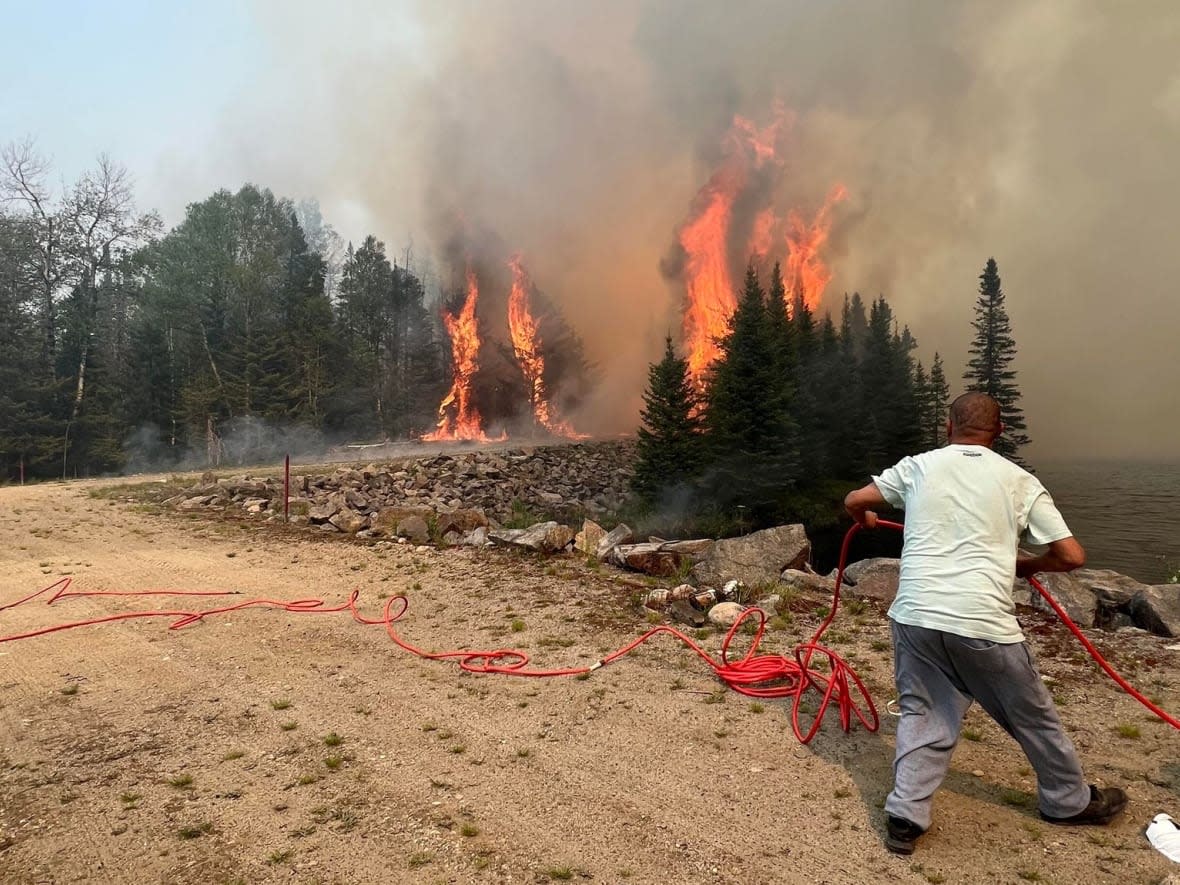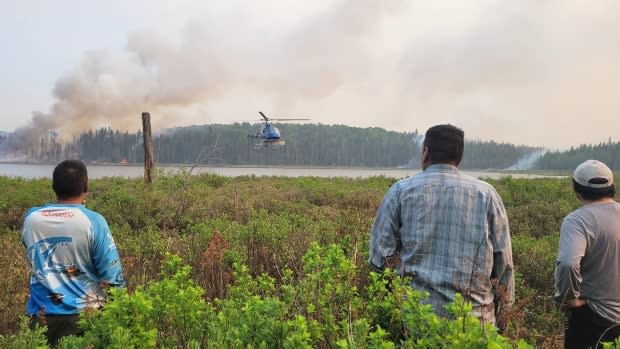Algonquins of Barriere Lake members evacuated from territory as Quebec wildfires burn

As wildfires continue to blaze in several regions of Quebec, members of the Algonquins of Barriere Lake are on the frontline protecting their territory.
"It's devastating at the moment because we don't know which way the fire will go today because of the winds," said Chief Casey Ratt.
"We're surrounded by fires in the north, east, west. It's just a scary time for our community."
Members were evacuated from the region on Sunday due to heavy smoke. However, 20-25 firefighters and concerned community members remain behind to combat and monitor the fires, one of which is burning about 20 kilometres away from Rapid Lake.
The Algonquins of Barriere Lake have a population of around 800 members. While some live on-reserve in Rapid Lake, located in the middle of La Vérendrye wildlife reserve in Quebec's Abitibi-Témiscamingue region, 310 kilometres northwest of Montreal, several members live in traditional settlements along traplines north of the community.
"We still have cabins in the bush. There are settlements in the territory that we are worried about," he said.
"We made sure that those people are evacuated. But again, those people are very worried about their cabins because they live there year round."

There are roughly 100 cabins by settlements, and Ratt said at least one has been destroyed by fire.
Indigenous Services Canada also evacuated the community's nursing station, which is a concern for Ratt who said firefighters and volunteers remain on the ground.
"We can't get any masks from them or any type of medical services if something should happen to our community members," he said.
"We are in need of masks and some type of fire suppressions. We do have a fire station, but we're not equipped to fight forest fires if they come near the community."
Indigenous Services Canada said it is monitoring the situation as it evolves and continues to work with First Nations and partners affected by the wildfires.
The Algonquins of Barriere Lake are among several First Nations in the region affected by wildfires in the province in recent days.
According to Indigenous Services Canada, the Lac Simon Anishnabe Nation was pre-emptively evacuated to Val d'Or on June 3, and as of June 5, approximately 750 people have returned to their community.
Kitcisakik remains evacuated due to the threat of fire and more than 380 evacuees are staying in Val d'Or and Amos. Kitigan Zibi remains on high alert due to the proximity of a fire and is preparing for a possible evacuation.
The more than 160 fires in Quebec have overwhelmed the capacity of the province's forest fire fighting agency, SOPFEU.
The agency has said it is prioritizing fighting fires that pose an urgent risk to human life or critical infrastructure.
Support from friendship centre
Community members were sent to Ottawa, Gatineau and Maniwaki. The Maniwaki Native Friendship Centre is the headquarters for evacuees in Maniwaki.

Executive director Charlotte Commonda said the friendship centre is on its third day of preparing 300 meals, providing mental health support, and co-ordinating donations and activities for evacuees.
"This is our mission and all to support families, and at the same time we're all affected," said Commonda.
"They are our brothers and sisters; they just live an hour away from us, an hour and a half. So, well, we want to be there."


